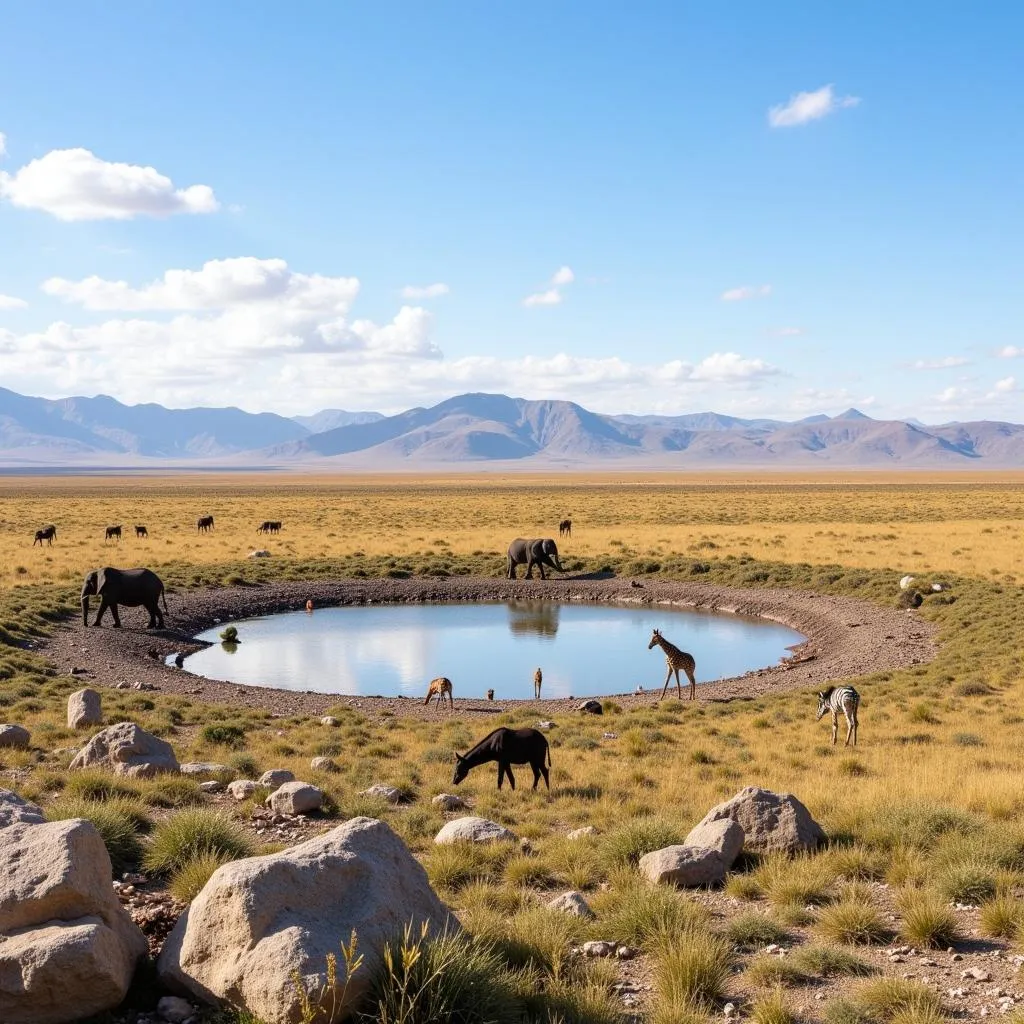African Raptors: Majestic Birds of Prey Soaring High
Africa, a continent teeming with diverse wildlife, boasts an impressive array of raptors, commonly known as birds of prey. These avian apex predators command the skies with their keen eyesight, powerful talons, and remarkable hunting skills. From the soaring vultures to the agile eagles, African Raptors play a crucial role in maintaining the delicate balance of the continent’s ecosystems.
Identifying African Raptors: A Guide to Their Diversity
African raptors encompass a wide range of species, each with its own unique characteristics and ecological niche. Identifying them can be an exciting challenge for bird enthusiasts. Here’s a glimpse into the diversity of these magnificent creatures:
Eagles: The Kings and Queens of the Skies
Africa is home to some of the world’s most iconic eagle species. The African fish eagle, with its striking white head and breast, is a common sight near water bodies, where it hunts for fish with remarkable precision. The crowned eagle, aptly named for its prominent crest, is a powerful forest-dwelling predator known for its ability to hunt prey larger than itself.
Vultures: Nature’s Clean-up Crew
Often misunderstood, vultures play a vital role in maintaining a healthy ecosystem by scavenging on carcasses. Their scavenging habits help prevent the spread of diseases. The African white-backed vulture, one of the most widespread vulture species in Africa, can often be seen soaring high in the sky, searching for its next meal.
Hawks, Falcons, and Kites: Masters of Aerial Acrobatics
These agile raptors are known for their exceptional flying skills and hunting prowess. The African goshawk, with its lightning-fast reflexes, is a formidable hunter of birds and small mammals. The Lanner falcon, a master of speed and agility, is a prized falconry bird.
The Crucial Role of African Raptors in the Ecosystem
African raptors, as apex predators, play a crucial role in maintaining the balance of their respective ecosystems. By controlling populations of prey species, they help prevent overgrazing and maintain biodiversity. Their scavenging habits also contribute to a healthy ecosystem by removing carrion and preventing the spread of diseases.
“The presence of healthy raptor populations is a testament to a thriving ecosystem,” notes Dr. Amina Kenyatta, a renowned ornithologist specializing in African birds of prey. “Their decline can have cascading effects on the entire food web.”
Threats to African Raptors and Conservation Efforts
Despite their vital role, many African raptor species face numerous threats, including habitat loss, poisoning, and the illegal wildlife trade. Conservation efforts are crucial to protect these magnificent creatures and ensure their survival for generations to come. Organizations like The Peregrine Fund and the Endangered Wildlife Trust are actively involved in research, conservation, and community outreach programs aimed at protecting African raptors.
Frequently Asked Questions about African Raptors
What is the largest raptor in Africa?
The martial eagle holds the title of the largest eagle in Africa, with a wingspan reaching up to 8 feet.
Are all vultures bald?
Contrary to popular belief, not all vultures are bald. The bald head of some vulture species, like the lappet-faced vulture, is an adaptation that helps them stay clean while feeding on carcasses.
How do raptors hunt?
Raptors have developed various hunting techniques. Some, like eagles, have powerful talons and beaks for catching and killing prey. Others, like falcons, rely on their speed and agility to catch prey in mid-air.
What can I do to help conserve African raptors?
Supporting conservation organizations, raising awareness about the threats they face, and advocating for responsible land management practices are some ways you can contribute to the conservation of African raptors.
Exploring the World of African Raptors
The world of African raptors is fascinating and diverse. From their impressive hunting skills to their vital role in the ecosystem, these birds of prey continue to captivate and inspire. By learning more about them and supporting conservation efforts, we can help ensure that these magnificent creatures continue to soar high in African skies for generations to come.
Need more information or have questions? Contact us at +255768904061, kaka.mag@gmail.com, or visit us at Mbarali DC Mawindi, Kangaga, Tanzania. Our team is available 24/7 to assist you.
Explore further:
- Learn about the African kestrel, a small but mighty falcon.
- Discover the unique features of African birds with mohawks.
- Delve into the world of African and Asian birds of prey.
- Expand your knowledge of African birds on Wikipedia.
- Browse a collection of captivating African bird pictures and names.



